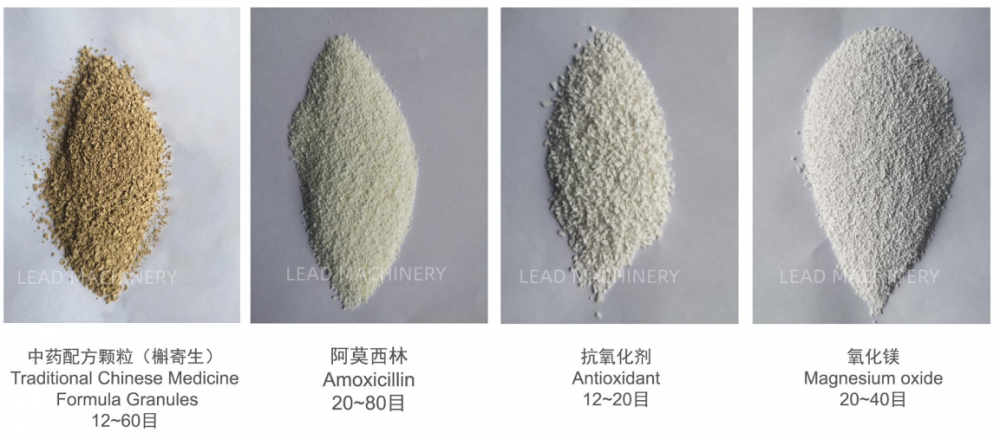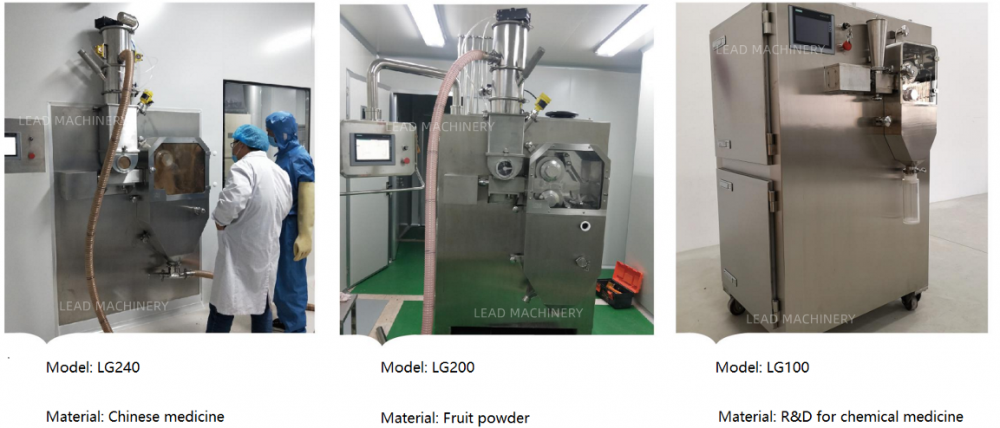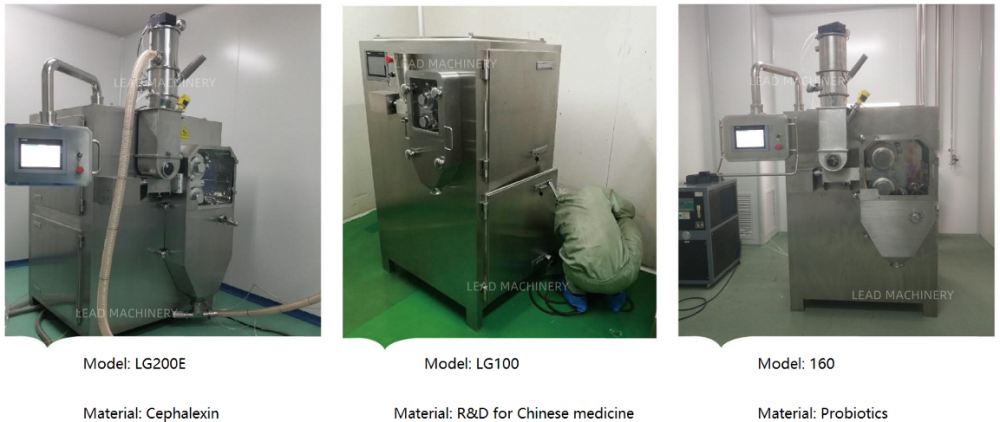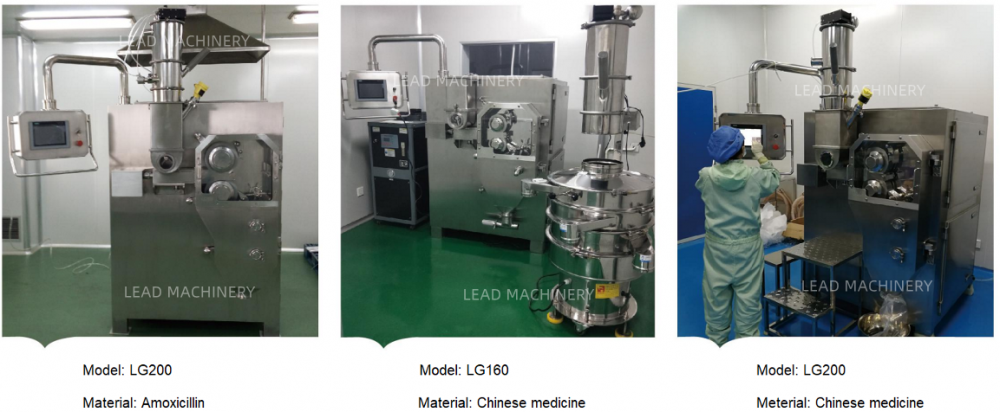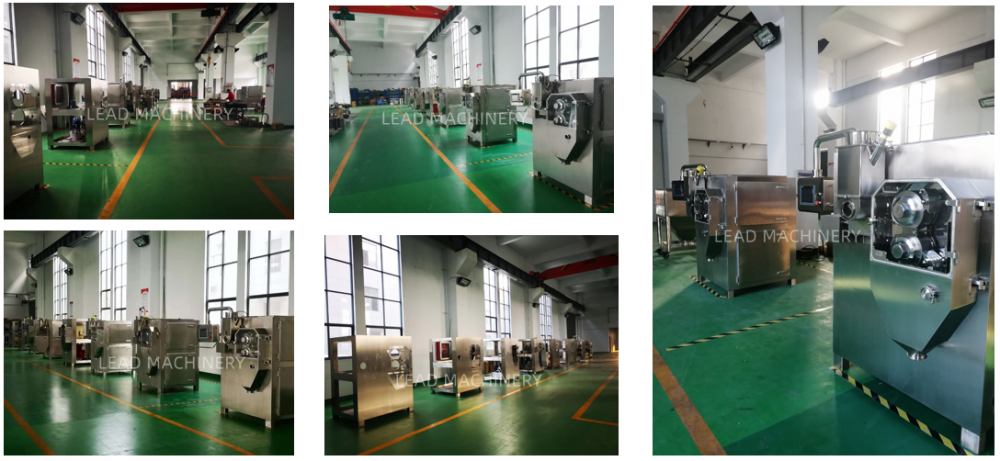Dry granulator is a widely used in the pharmaceutical industry that plays a crucial role in the production of solid dosage forms. It involves the compaction of powder ingredients into granules without the use of liquid binders.
Dry granulation is a process that transforms powder ingredients into granules using mechanical pressure. Unlike wet granulation, which involves the addition of liquid binders, dry granulation relies on the interparticulate forces within the powder blend to create cohesive granules. This method offers several advantages, including enhanced chemical stability, improved flow properties, and compatibility with heat-sensitive compounds.
Dry granulation finds extensive applications in various pharmaceutical manufacturing processes. Some key areas where dry granulation is utilised include:
Tablet Manufacturing: Roll compaction granulator is widely employed in tablet manufacturing processes, especially for drugs that are sensitive to moisture or heat. By eliminating the need for liquid binders, dry granulation ensures the stability and potency of the active pharmaceutical ingredients (APIs) during the compression and storage phases.
Controlled Release Formulations: The dry granulation method is often used to produce controlled release formulations, where the release of the drug is modulated over an extended period. By incorporating excipients with specific release properties, dry granulation enables the creation of dosage forms that offer sustained drug release, resulting in improved therapeutic outcomes and patient compliance.
Formulation of Sensitive and Heat-Labile Drugs: Certain drugs are prone to degradation when exposed to moisture or high temperatures. Dry granulation provides an ideal solution for formulating such sensitive and heat-labile drugs, as it eliminates the need for liquid-based processes that could compromise the drug’s stability and efficacy.
Improved Stability and Shelf Life: Roller compaction granulation offers improved stability and shelf life for pharmaceutical formulations. By reducing exposure to moisture, the granules produced through dry granulation exhibit enhanced chemical stability, ensuring the longevity and quality of the final product.
Reasons Why Dry Granulation is Used
Several factors contribute to the preference for dry granulation over other granulation methods in the pharmaceutical industry:
Elimination of Moisture-Related Issues: Moisture can have detrimental effects on the stability and efficacy of pharmaceutical formulations. Dry granulation eliminates the use of liquid binders, reducing the risk of moisture-related issues such as drug degradation, microbial growth, and changes in physical properties.
Enhanced Chemical Stability: Dry granulation helps maintain the chemical stability of active pharmaceutical ingredients (APIs) by minimising their exposure to moisture and potential degradation reactions. This ensures that the drug retains its therapeutic efficacy throughout its shelf life.
Preservation of Drug Potency: By avoiding the use of solvents or liquid binders, dry granulation minimises the potential for drug degradation or loss of potency. This is particularly important for heat-sensitive compounds or APIs that are susceptible to hydrolysis or oxidation.
Cost-Effectiveness and Efficiency: Dry granulation machine offers cost-effectiveness and efficiency in pharmaceutical manufacturing processes. It eliminates the need for time-consuming drying steps associated with wet granulation, reducing energy consumption and processing time. Additionally, the absence of liquid binders simplifies the formulation and reduces production costs.
Compatibility with Heat-Sensitive Compounds: Certain active ingredients may undergo thermal degradation when exposed to elevated temperatures during wet granulation. Dry granulation provides a gentle processing method that avoids high temperatures, making it suitable for heat-sensitive compounds.
Lead Machinery is a professional manufacture and supplier of roller compactor that specialises in providing advanced solutions for dry granulation in the pharmaceutical industry. Our expertise lies in the design and manufacture of high-quality Granulation Equipment, including innovative micro-particle size reduction and mixing technologies.
Lead dry granulation machine offers precise control over the granulation process, enabling pharmaceutical manufacturers to achieve desired particle size distributions, uniformity, and flow properties.
